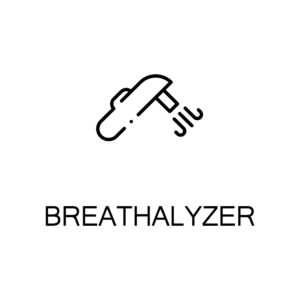
Under Minnesota’s Implied Consent law, it is a crime in itself to refuse to submit to a breathalyzer test if the police officer has probable cause to believe the driver is operating a vehicle under the influence of alcohol. You are within your rights to refuse to take the breathalyzer test, and in some cases it may be in your best interest to refuse if know you’re going to be handing the police clear evidence that you are under the influence (always talk to an attorney before making this decision if possible), but be warned that it carries some consequences.
Today, we take a look at what happens if you refuse to submit to a breath test, and what constitutes a refusal under the law.
What Happens If Refuse A Breathalyzer?
As we noted above, you can choose to refuse to submit to a breath test if the officer suspects that you are under the influence, but that doesn’t mean you’re free to go. Minnesota’s Implied Consent Law, which we’ve argued against in the past, is designed to give harsher punishments to individuals who refuse to submit warrantless breath evidence to the cops, even though doing so helps to build the case for the prosecution. It’s a lose-lose situation.
Here are two standard DUI scenarios, and you can see how refusal may affect your case. Assume in both scenarios that the individual was driving with a BAC of 0.09 and was pulled over safely without accident or injury.
Submit to Testing – The driver submits to a breath test which reveals they are over the legal driving limit. They are arrested and charged with 4th degree DUI, a misdemeanor under Minnesota law. This is punishable by up to 90 days in jail, fines of up to $1,000, and a 90-day loss of their driver’s license.
Refuse to Submit to Testing – The driver refuses to submit to a breath test. The police, noting other indicators of intoxication like bloodshot eyes, slurred speech and the smell of alcohol, place the driver under arrest for drunk driving. The driver is charged with 3rd degree DUI (upgraded because of refusal), which is a gross misdemeanor, punishable by up to one year in jail and fines up to $3,000. The driver who refused will also lose their license for a minimum of one-year if found guilty.
Examples of Breathalyzer Refusal
There are a number of ways a driver can be charged with refusal, even if they willingly submit to a breath test. Under Minnesota law, a driver can be charged with test refusal if they engage in conduct that prevents or hinders the collection of a blood alcohol concentration sample. This means that any of the following actions can constitute refusal:
- Flat out refusing to submit
- Belligerent actions that detract from testing
- Failure to heed the officer’s instructions
- Failure to provide two separate valid tests
- Blowing around the mouthpiece instead of into it
- Putting breath mints in your mouth prior to the test
- Prolonged silence by a suspected drunk driver after an officer has given instructions
Also, under Minnesota law, an officer is not required to let a suspected drunk driver take a test after they have previously refused to submit to testing, unless the decision to submit is immediate and will not unreasonably delay the administration of the test. An officer can allow you to take a breath test after you’ve refused, but they are not legally required to.
So if you end up in a sticky situation and you are wondering if you should submit to a test, reach out to Avery Appelman at (952) 224-2277 as soon as possible for guidance.





